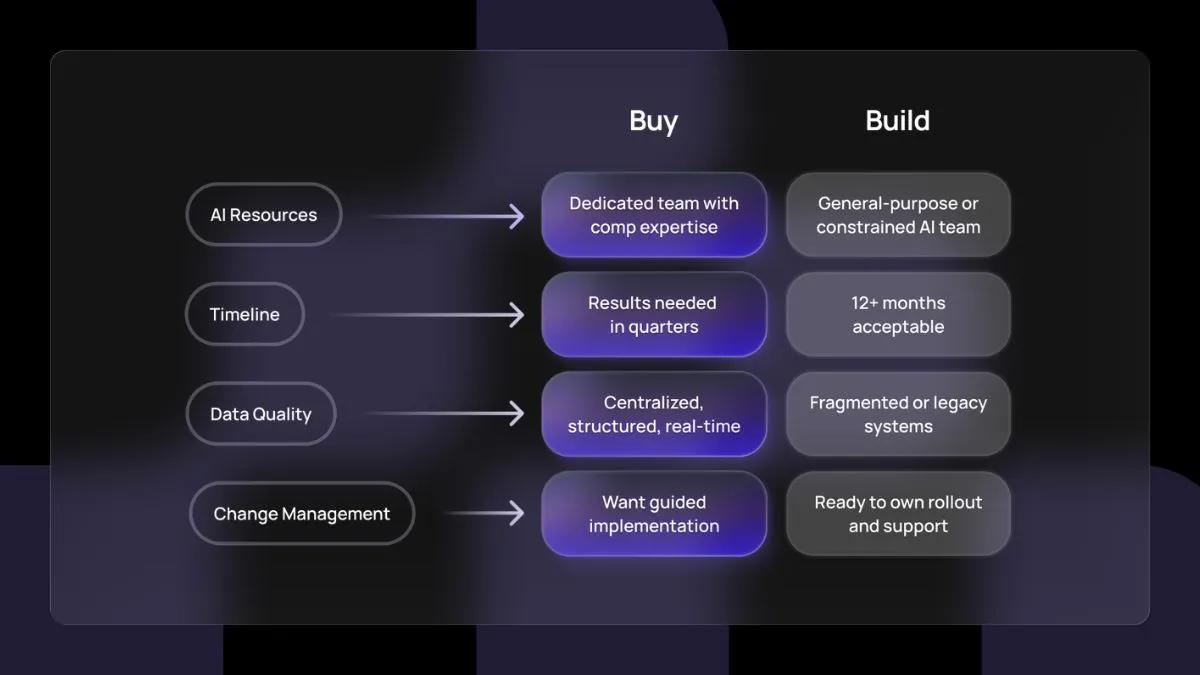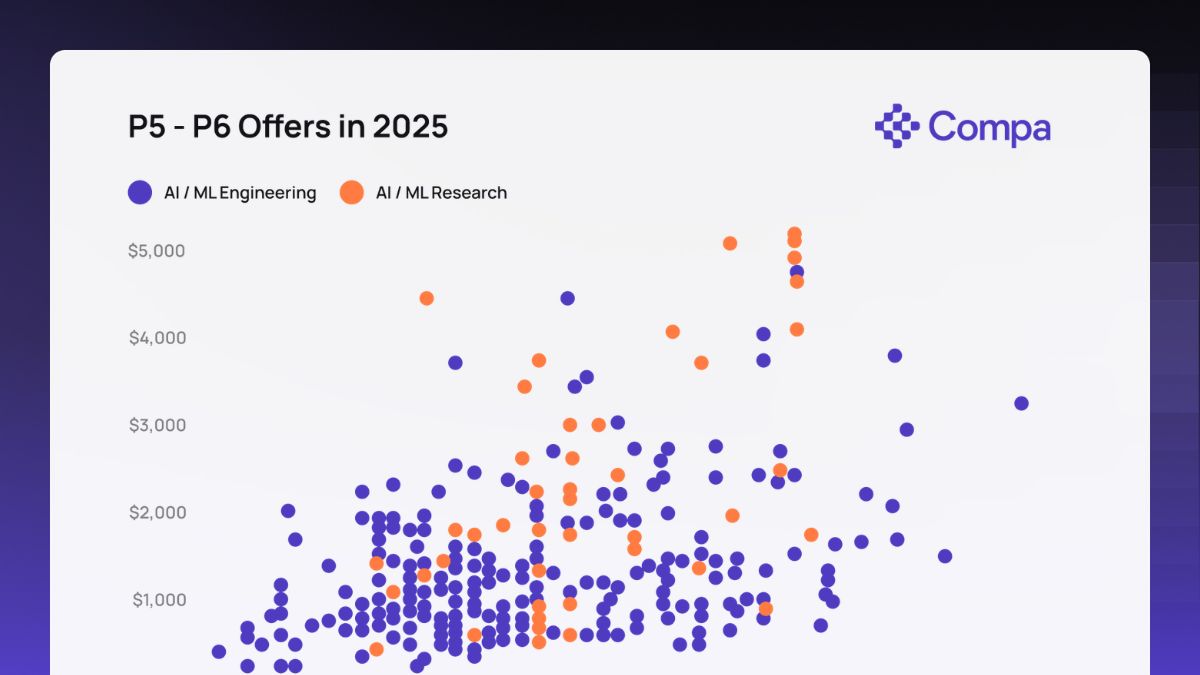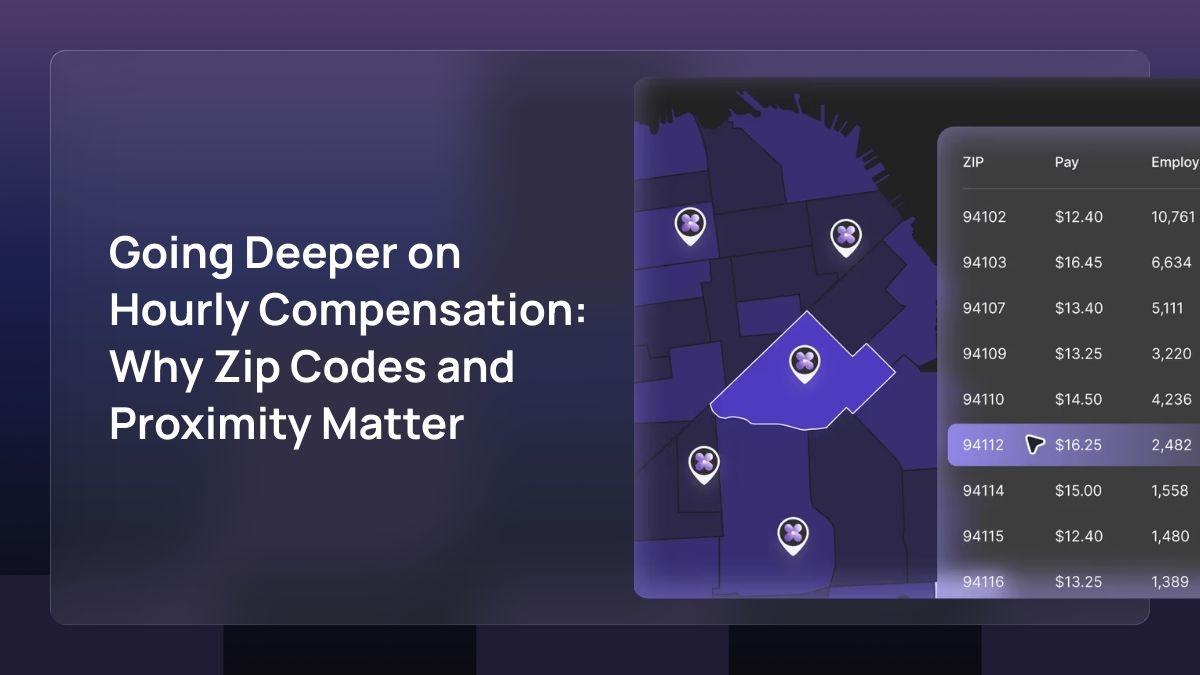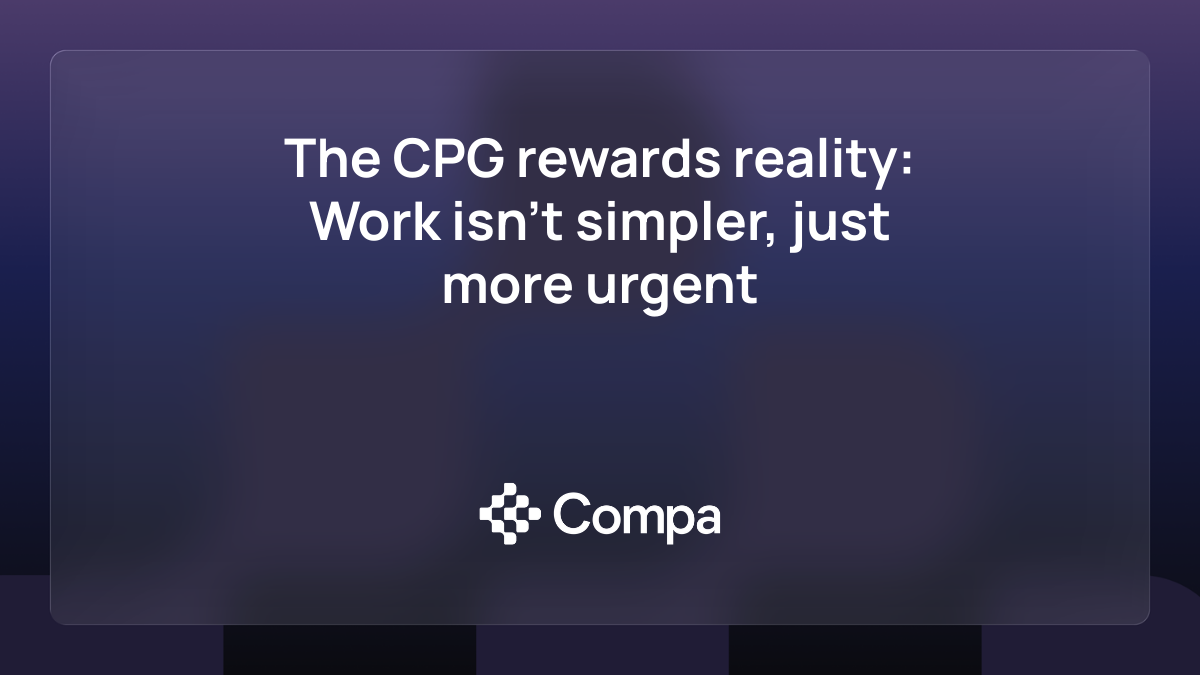Build vs. Buy: 9 hidden realities of creating AI for comp teams

Every comp leader is asking: Should we build our own AI tools, or buy software?
It's not just a tech decision but a strategic choice that will define how compensation teams operate for the next decade.
And most companies will get it wrong.
The temptation to build AI in house
There's something appealing about building internally. Especially when the engineering team is eager to tackle the "AI for comp” problem.
The promise sounds perfect:
- Complete customization for unique policies
- Full control over models and outputs
- Keep all IP and data internal
For companies with complex equity structures, international regulations, or specialized roles, building feels like the only way to capture every nuance.
But here's what actually happens.
9 hidden realities of building versus buying
1. In-house AI resources get pulled everywhere but comp
AI teams don't just serve HR, they serve the entire company.
Sales wants predictive analytics, marketing needs personalization engines, and product demands recommendation algorithms.
Within HR, every team wants AI capabilities. People Ops usually gets first dibs because automation scales across the entire workforce immediately.
Compensation? Fourth in line.
Result: The compensation AI project becomes a 2026 initiative.
2. AI without compensation expertise misses the mark
To be effective, AI for compensation requires a deep understanding of how pay actually works.
Internal IT teams, no matter how talented, often lack this “comp radar.” They miss how pay decisions ripple across the business and the critical details like equity vesting schedules, compa ratios, leveling frameworks, and geographic variations.
And if you’re not in the room, they might build it without you.
The risk: A broad solution to solve comp’s edge cases. But in comp, edge cases are the job.
3. Building a tool is easy, maintaining a product is hard
Creating a working demo is 20% of the journey.
The real work is in security audits, compliance frameworks, maintenance, feature evolution, and user support.
Every new comp policy means another sprint and regulatory changes require fresh engineering cycles.
The burden: Maintaining a product, not just a tool.
4. Quarterly build cycles don’t match weekly comp decisions
While internal AI development operates on quarterly timelines, compensation challenges operate weekly.
Pay equity audits can't wait for the next sprint and recruiting guidance needs to be accurate today.
The opportunity cost: Competitors are using AI to make fast, smart decisions.
5. Buying AI for compensation drives scale and security
Buying isn’t just about speed—it’s about specialization. Purpose-built compensation platforms are designed by teams who live and breathe comp. They’ve handled every edge case, solved every messy integration, and built solutions around best practices proven across hundreds of enterprise rollouts.
And when you buy, you don’t just get software, you get scale. The best platforms learn from entire markets, not just one company’s data. Every implementation feeds the system, making it smart for everyone.
Finally, buying means entrusting security and compliance to those who do it full-time. In today’s regulatory climate, that’s non-negotiable.
6. The power of AI in comp depends on the systems around it
AI in compensation has to plug directly into ATS, HRIS, planning, and analytics systems.
Specialized vendors build and maintain these connections, updating them as the ecosystem changes.
The strategic advantage: Internal teams focus on compensation strategy, not software maintenance.
7. The real cost of building AI is comp losing strategic focus
67% of comp teams say their biggest challenge isn't having the right data, it's having the bandwidth to act on it.
Building AI isn't just a project, it's a commitment to becoming a software company.
For most organizations, this represents a fundamental misallocation of strategic focus.
8. Buying accelerates timeline, reduces risk, amplifies impact
Building stretches timelines into quarters (or years), while buying gets comp teams operational in weeks.
Specialized vendors have solved for security, compliance, integrations, and scale, removing the risks that derail in-house projects.
The payoff is focus: Comp teams spend their time shaping comp strategy and delivering outcomes, not debugging software. And because every customer feeds the platform, the impact compounds—your AI gets smarter, faster, than anything you could build alone.
9. Answering questions isn’t the same as solving problems
Many companies explore the possibility of "building" but end up deploying chatbots that surface comp policies or return HRIS data.
Useful? Yes. But is it the same as AI systems that generate recommendations, coordinate decisions, and produce recruiter-ready outputs? No.
True AI compensation platforms don't just answer questions, they solve complex problems, advise on program decisions, and tell compelling stories.
Now what?
AI is changing how compensation teams work, from market analysis to offer generation and strategic decision-making.
But potential requires more than ambition; it requires clarity about where to focus limited resources.
The companies that get this decision right won't just improve their processes, it will change how they attract, retain, and motivate talent in an increasingly competitive market.
The window for gaining this advantage is closing rapidly.
The defining question: Do you want to spend the next two years regretting your decisions, or the next two quarters transforming talent strategy?





